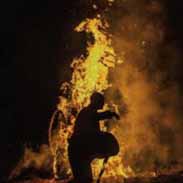Scope, History, and Impact of Microbiology – Flashcards
Unlock all answers in this set
Unlock answersquestion
| Robert Hooke |
answer
| Coined the term "cell" upon observation of cork cells (1660) |
question
| Jannsen brothers |
answer
| Assembled the first microscope (1500s) |
question
| Anton von Leeuwenhoek |
answer
| Discovered "animalcules" in water samples with his microscope (1600s-1700s) |
question
| Genus |
answer
| The first, capitalized half of a species name |
question
| Specific epithet |
answer
| The second half of a species name, unique to that species |
question
| Francesco Redi |
answer
| Conducted an experiment with maggots to prove biogenesis (1668) |
question
| Jablot |
answer
| Boiled hay and kept samples of it in two containers, one covered, one uncovered, to prove biogenesis |
question
| Schultze and Schwann |
answer
| Conducted a heated air experiment to prove biogenesis (1837) |
question
| Louis Pasteur |
answer
| Ultimately discredited abiogenesis (1860s). Considered one of the "fathers" of microbiology. Also explored relationships between microbes and food, connected specific microbes to specific diseases, and advanced vaccination. |
question
| John Tyndall |
answer
| Showed some microbes require intense heat and pressure to kill |
question
| Fernand Cohn |
answer
| Discovered bacterial spores |
question
| Puerperal fever |
answer
| Potentially fatal and dangerous disease that colonizes the genital tract after childbirth. Was abundant in hospitals through the 1800s because of poor hygiene among doctors. |
question
| Oliver Holmes |
answer
| Suggested link between not handwashing and puerperal fever (1843) |
question
| Ignaz Semmelweis |
answer
| As the head of a maternity ward, forced doctors to wash their hands, which led to a dramatically reduced incidence of puerperal fever (1849). Doctors were angry and ignored this finding. |
question
| Joseph Lister |
answer
| Published first treatise on antiseptic technique (1869) |
question
| Pasteurization |
answer
| Heating to a specific temperature for a set time to kill bacteria |
question
| Robert Koch |
answer
| Developed criteria for determining whether a given microbe causes a given disease |
question
| Sometimes Koch's postulates don't work. Why? |
answer
| Usually, it's because the pathogen can't be grown in culture. Some microbes are very picky about their environment, and we can't replicate those conditions accurately enough to grow them in lab. |
question
| Sergei Winogradksy |
answer
| Showed that some bacteria have beneficial roles (1888) |
question
| Dmitri Ivanovsky |
answer
| Studied tobacco mosaic virus (1890s). Couldn't identify the causative agent, so assumed it was poison. |
question
| Martinus Beijerinck |
answer
| Studied tobacco mosaic virus, and found that the agent could not be diluted (and thus not a poison), and was only active on tobacco leaves. Coined the term "virus" (1895) |
question
| Peyton Rous |
answer
| Discoverer of a virus causative of chicken leukemia (1911). Later won a Nobel Prize. |
question
| Prions |
answer
| Self-replicating, misfolded proteins. Diseases caused by these are called transmissible spongiform encephelopathies (TSE). |
question
| Taxonomy |
answer
| The scientific technique of classifying objects |
question
| Traditional taxonomy |
answer
| Based on physical characteristics. Easy to use, but misleading. |
question
| Phylogenetic taxonomy |
answer
| Based on how organisms are related through evolution. Very new and clashes with traditional taxonomy, but more accurate. |
question
| Carolus Linnaeus |
answer
| Botanist/physician who came up with the first classification system for life (1735) |



